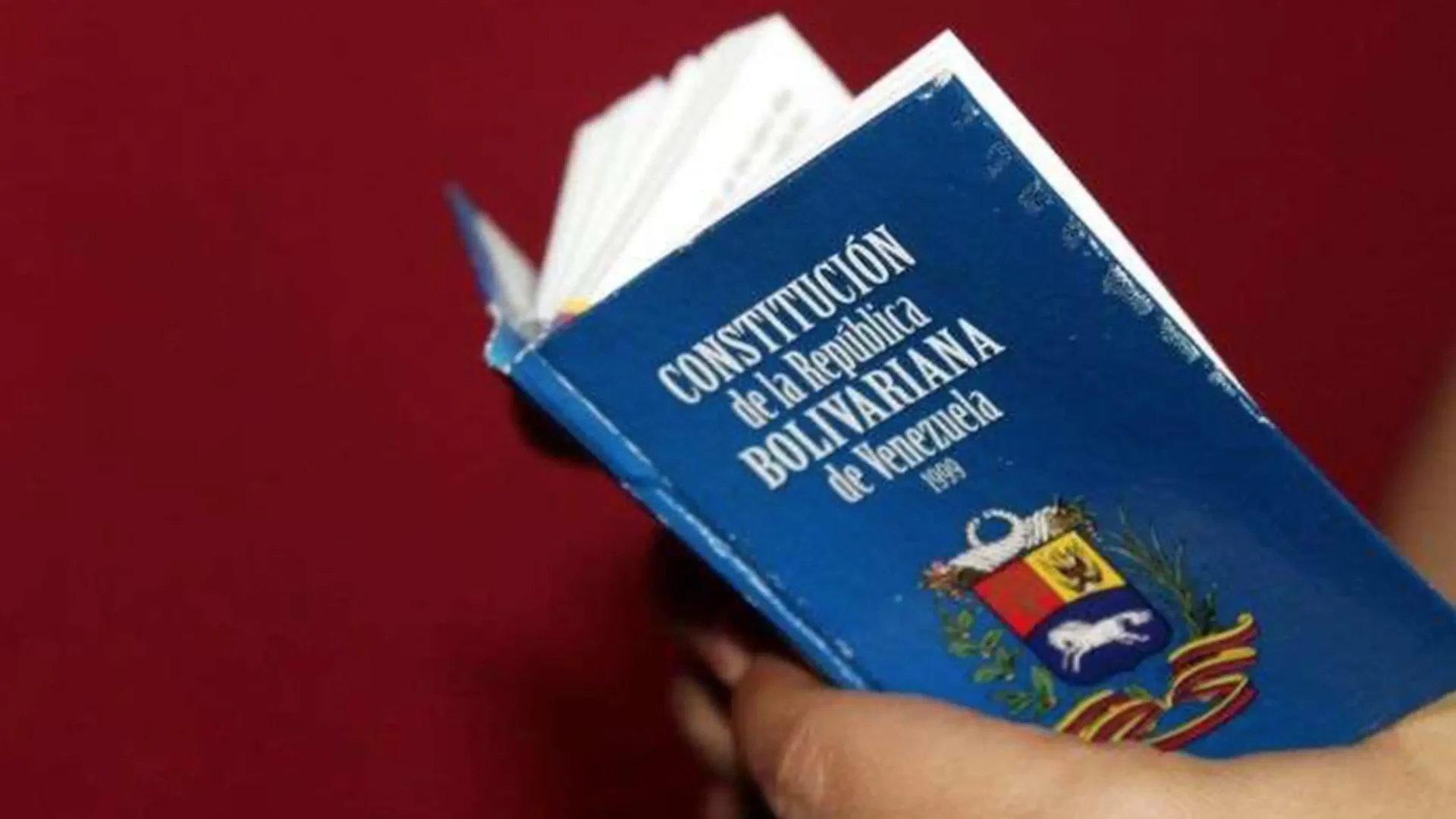In response to the proposed constitutional reform in Venezuela, led by the country’s president, Nicolás Maduro, and spearheaded by the Attorney General, Tarek William Saab, public opinion aligned with the opposition has expressed the need to organize a united front in defense of the National Constitution. This Constitution was enacted during Hugo Chávez’s presidency in 1999—a document that, ironically given the current context, both Maduro and William Saab helped draft as members of the original constituent assembly.
The question of why change a Constitution created by the very political system still in power today is easy to answer: law and democracy prove inconvenient for those who hold power. According to the ruling party, the “bourgeois State model” must be “overcome.”
Unfortunately, this behavior is not new in Venezuela’s republican tradition. Since 1811, the country has had 25 Constitutions, many of them crafted solely to ensure the continued rule of the leader in power at the time.
However, given the geopolitical and technological shifts underway in the global system, it is pertinent to have a deeper discussion—without adopting the official narrative. We must ask: What changes are truly necessary in Venezuela’s Constitution to restore full democracy in the country, while also addressing the challenges of today’s society?
With that in mind, here are at least six relevant points for the constitutional debate:
On the protection of human rights and the digital dimension
The current Constitution of the Bolivarian Republic of Venezuela (CRBV) contains numerous articles on human rights that should remain unchanged to ensure the protection of human dignity from potential abuse by the State or those in charge of public institutions. However, certain aspects merit revision to incorporate digital dimensions.
Take Article 28, which states: “Everyone has the right to access information and data about themselves or their property contained in official records…” Given the digital age and the use of personal data by third parties (often without consent), this article should be updated to ensure digital data protection and even establish a “right to be forgotten,” as seen in European legislation.
Similarly, Article 29 affirms: “The State is obliged to investigate and legally punish human rights violations committed by its authorities… Violations of human rights and crimes against humanity will be investigated and judged by ordinary courts.” While this should not be weakened, it deserves revision to incorporate transitional justice mechanisms. In a potential democratic transition, extraordinary or even international courts may be necessary to ensure justice and reparations for the thousands of human rights victims in recent years.
On nationality and citizenship
Nationality is a core issue of national identity and social cohesion. After a complex humanitarian and migration crisis in Latin America, with Venezuela as a major source of outflows, a more flexible approach is needed.
For instance, Article 41 restricts high-level public office to Venezuelans by birth who hold no other nationality. But with mass emigration, many Venezuelans will soon hold dual or multiple citizenships. This restriction should be eliminated to allow all Venezuelans by birth to hold political office, regardless of other nationalities.
In the same vein, Article 33 defines naturalization. Currently, a foreigner married to a Venezuelan must wait five years to apply. This period should be reduced or removed for immediate access upon request. Similarly, access to citizenship after five years of residence is limited to nationals of certain countries (Spain, Portugal, Italy, Latin American and Caribbean nations). This preferential treatment should be removed to create a more inclusive standard for binational families who wish to settle in Venezuela, regardless of their country of origin.
On political rights
Political rights are the dimension with the greatest violations by the Venezuelan State. In that sense, this aspect deserves a deep reflection in order to make the necessary modifications that may prevent abuses by certain institutions, especially in case they are managed by authoritarian figures.
However, other relevant aspects can be mentioned for discussion. For example, Article 62 states: “All citizens have the right to participate freely in public affairs, directly or through their elected representatives.” Considering the migratory reality, some modification should be established to guarantee that this right to participation may be exercised beyond the fact of not residing in the national territory.
Likewise, Article 63, which establishes that suffrage is a right, should also present a consideration so that this right is ensured for all Venezuelans residing outside the national territory.
On recognition of other ethnic groups (Afro-descendants)
The CRBV was one of the first constitutions in the region’s modern wave to recognize and guarantee the rights of historically excluded groups, particularly Indigenous peoples. However, there remains an outstanding debt to other ethnic groups.
One such group is the Afro-descendant community. Following Colombia’s example—a neighboring country with a similar social and historical makeup—Venezuela should include a specific provision recognizing Afro-descendants, their need for justice and reparations, and their political participation in legislative bodies.
On the composition of the national assembly and diaspora representation
In Venezuela, the Legislative Branch is represented by the National Assembly, whose composition is unicameral. Considering the experience of the last 26 years with the CRBV, a profound debate should be presented to determine whether the unicameral way is still adequate for the national political organization or whether it is necessary to return to bicameralism as it was during the last 40 years, before the arrival of Chavism.
On the other hand, in Article 186, which establishes the proportional composition of the National Assembly, at least two modifications should be considered. The first one is that this principle of proportionality should also represent the Venezuelan Diaspora, scattered in different countries. That is to say, the Constitution should guarantee that Venezuelan migrants have representation at the legislative level, as other countries such as Ecuador or the Dominican Republic have.
A second aspect, closely linked to the previous point, is the representation of ethnic groups. In this sense, Article 186 establishes that indigenous peoples will have three representatives in the National Assembly, and this same principle of inclusion should be applied to Afro-descendant communities based on some criterion of proportionality and geographic correspondence.
On institutional checks and balances
Beyond the Executive and Legislative branches, Venezuela’s Constitution recognizes institutions like the Supreme Court, National Electoral Council, Attorney General’s Office, Comptroller General, Public Prosecutor’s Office, and Ombudsman. However, given Venezuela’s current regime and recent history, these checks and balances are inadequate.
State institutions reflect the country’s political dynamics and cultural framework. The current constitutional debate should consider new institutions modeled on other nations. For example, Chile has a Transparency Council that ensures public access to information. Chile’s State Defense Council (CDE), which represents the state in legal matters, could also serve as a useful model—particularly given Venezuela’s ongoing territorial disputes, debt levels, and legal claims.
Time to set the agenda again
These proposals aim to foster a substantive discussion. They do not ignore reality. Most Venezuelans are not concerned with constitutional reform right now. Economic hardships persist, and political problems remain unresolved.
The outcome of the July 28, 2024, presidential election still dominates the political agenda. Moreover, the recent controversy over Venezuelan deportations from the United States has sparked nationwide outrage. The upcoming May 25 election is also under debate, while over 1,000 political prisoners remain in detention, according to the NGO Foro Penal.
In light of this, political resources must be used wisely. A constitutional debate can address many of the country’s unresolved and pressing issues. But if only the ruling party continues to control the agenda, it will be a missed opportunity—one that could further entrench authoritarianism. It’s vital for those who believe in democracy to regain control of the national agenda.
*Machine translation proofread by Janaína da Silva.












